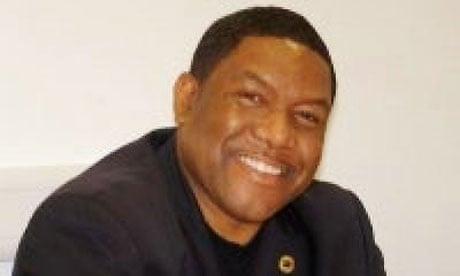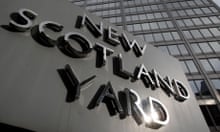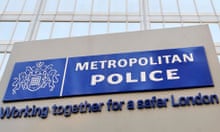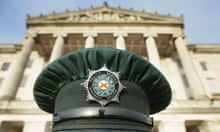The police should not be trusted to tackle racism on their own, according to a senior officer who has called for government intervention to hold forces to account in the fight against discrimination.
Following a spate of revelations concerning racism within Scotland Yard, the chairman of the Metropolitan police's Black Police Association said a pan-Whitehall group to restore trust between police and communities should be reintroduced.
Bevan Powell said the organisation should be modelled on the Stephen Lawrence steering group, which was established in May 1999 after the Macpherson inquiry's first recommendation into the black teenager's murder said that it should be a "ministerial priority" for police services to build "confidence in policing amongst minority ethnic communities".
The steering group, whose membership included Doreen Lawrence, the mother of the murdered teenager, was disbanded in 2005 by then home secretary, Charles Clarke, a decision increasingly seen as premature amid growing evidence that the problem of racism remains.
The lack of progress has been partly highlighted by new figures revealing that just two officers out of 2,270 accused of racist behaviour in the last five years have been dismissed. Those who lost their jobs were required to resign instead of being sacked, which meant they kept pension entitlements.
Powell said: "We need to look at political structures as well, such as the Stephen Lawrence steering group within the Home Office. This was a group of people who could hold police chiefs to account in ensuring they moved towards an anti-racist organisation, but unfortunately that was done away with."
He added that "complacency" had been allowed to creep back in following the publication of the Macpherson report in 1999, and also called for an internal Met inquiry to establish the extent of racism within the force.
The Met has suspended eight officers and a civilian worker as part of an investigation into 10 separate allegations of racist abuse, bullying and violence involving 18 officers and one staff member. An internal inquiry by the Police Service of Northern Ireland has seen four officers suspended over racist and sectarian text messages. Powell said the recent disclosures embroiling Scotland Yard, which include an audio recording of an officer racially abusing a man in east London, underlined the importance of officers being able to report prejudice without fear of persecution by colleagues.
The Met commissioner, Bernard Hogan-Howe, has urged officers to report any colleagues who made inappropriate remarks, stressing his determination to stamp out racism.
Powell said: "We need a new era of community and police race relations looking at supervision at a local level."
Following the Macpherson report, which branded Scotland Yard institutionally racist, the Met's leadership pledged to weed out prejudiced officers, but those monitoring the issue say it has slipped down the agenda.
"After the Stephen Lawrence inquiry there was a lot of activity within the Met and major inroads were made, but in recent years race has been put on the back burner and that has been a concern of the association," Powell said.
One issue that could exacerbate tensions between police and their community is the forthcoming elections for police and crime commissioners. Some are fearful that elected individuals might inflame racial tensions or not grasp the sensitivities required.
"These people are extremely powerful and will be deciding the way in which policing priorities are made," Powell said. "It's absolutely crucial these individuals demonstrate that they are committed to an anti-racist police service."






